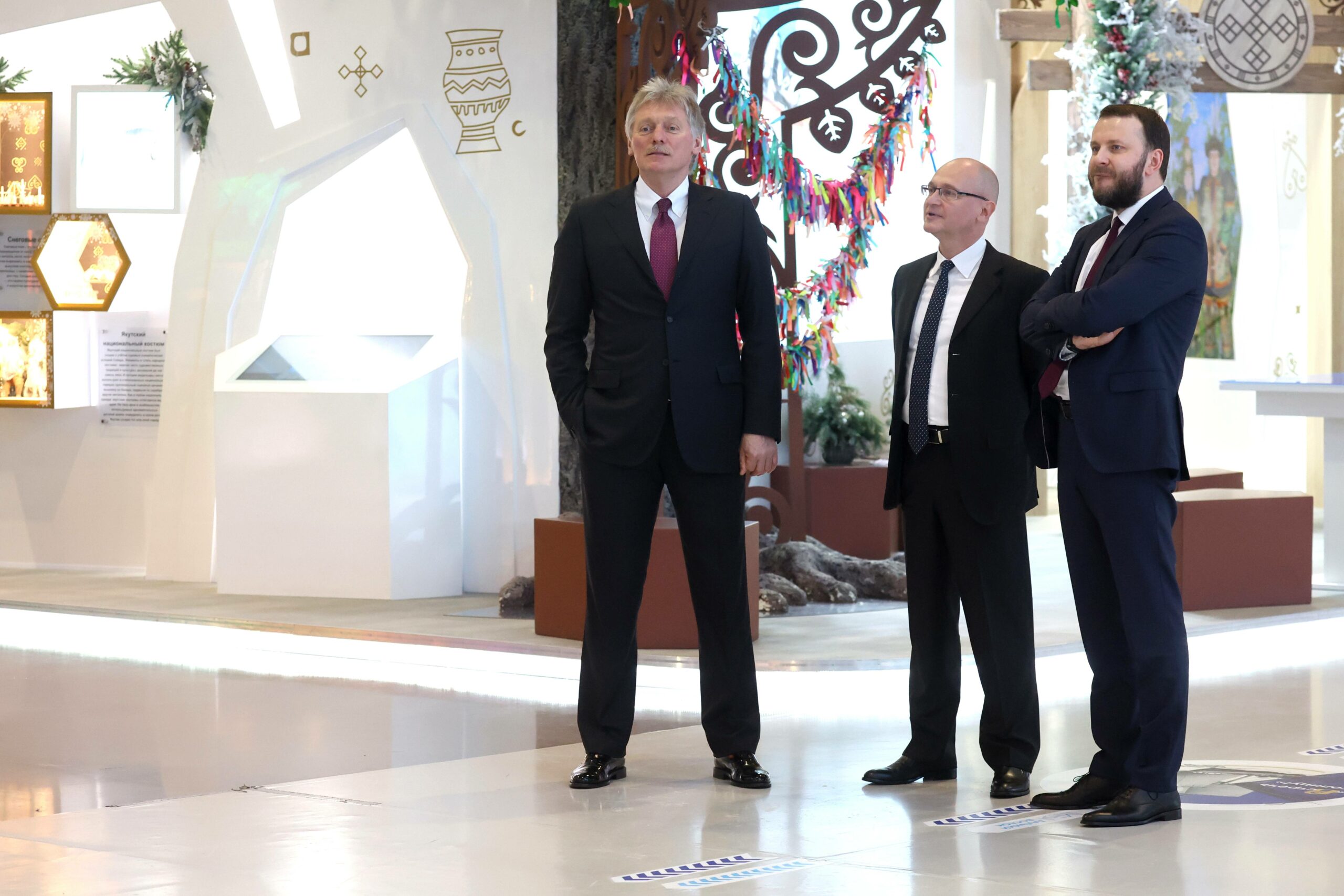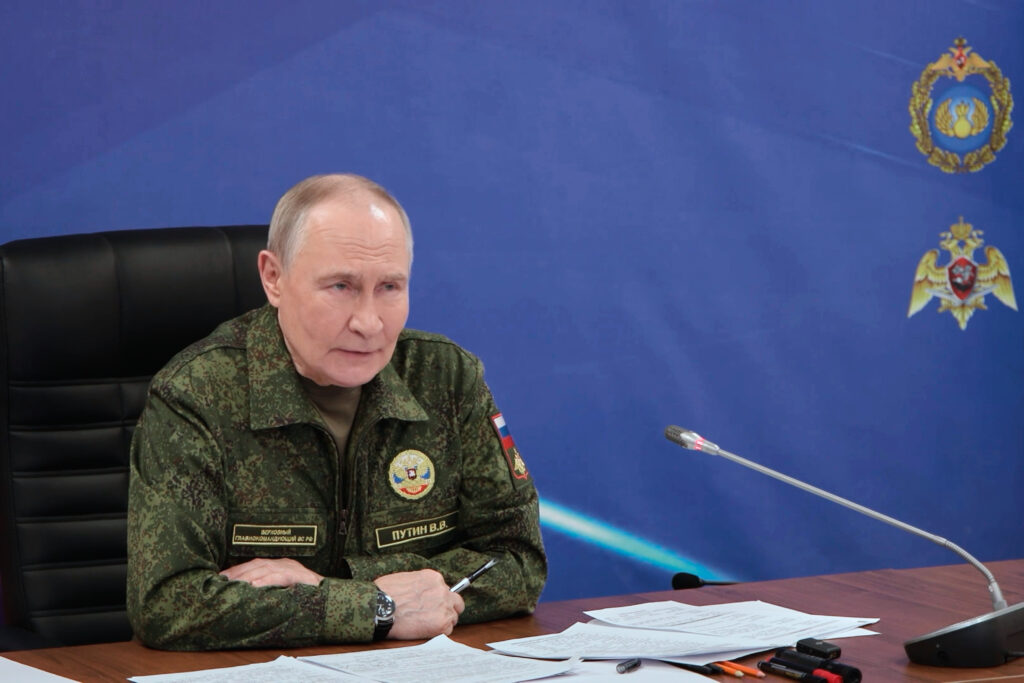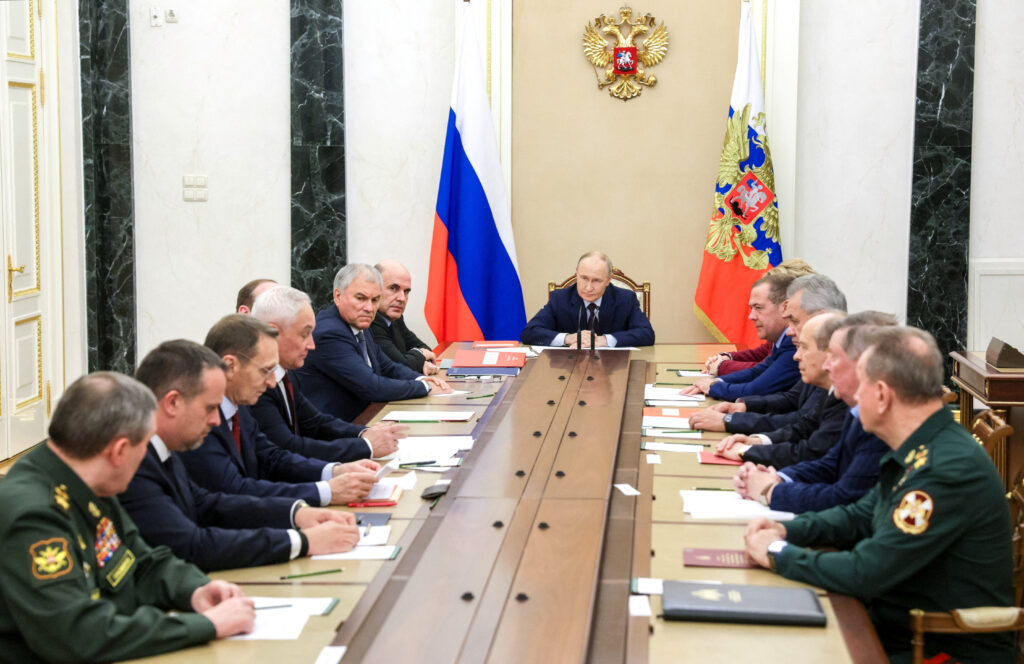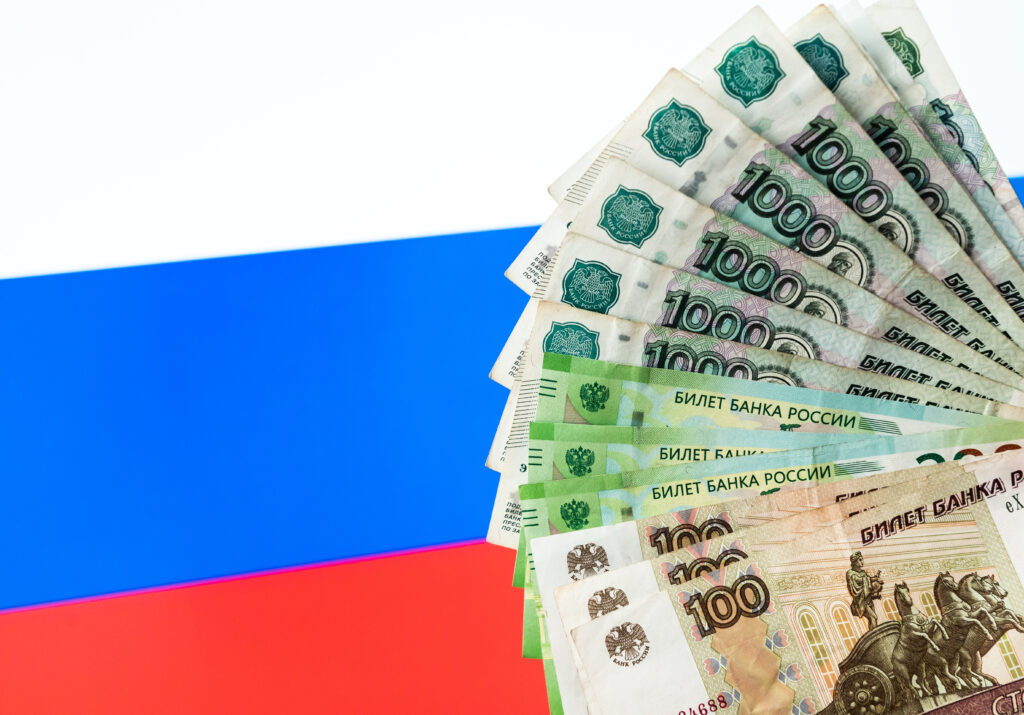Vladimir Putin has long spoken of Russian «collectivism» which he contrasts with Western «individualism». «At the heart of American identity is an individualistic idea. Russian identity is based on a collectivist idea,» he argued back in 2013. In 2018, Putin called «collectivism» one of the «advantages» of the Russian people. Finally, in 2022, «collectivism» was listed among the traditional spiritual and moral values in Putin’s decree on their preservation and strengthening. This list included «service to the fatherland» and «creative labour» for its benefit. «Collectivism», the rejection of personal aspirations and one’s welfare in favour of the good of the public or the state, was the cornerstone of Soviet ideology. In the USSR, labour — collective labour, of course — was also geared towards the welfare of the state. The Kremlin is reviving Soviet practices, including the promotion of collectivism in the sense of labour (preferably selfless) for the benefit of the state. A few years ago, the Kremlin’s political bloc promoted the idea of volunteering, especially among the young — that is, unpaid activist work. Back then, few people rallied around the authorities’ volunteer banner — it turned out that Putin’s ideas about the «collectivism» of the Russian people had little in common with the real mood of society. That is why the Kremlin is trying to literally shape the collectivism of Russians, including the bureaucratic elite, by imposing it.
Cohesion bought and paid for
In the autumn of 2023, the autonomous non-profit organisation «Russia — Land of Opportunities» announced the start of a large-scale competition called «It Runs in the Family». Timed to coincide with Putin’s election campaign, it will involve several hundred people. Participation in the contest, with prizes (such as certificates to obtain free apartments or travel vouchers), is intended to increase the loyalty of the electorate, both the contestants themselves, but also their acquaintances and relatives. However, «It Runs in the Family» has another goal, which the organisers do not hide. The competition is intended to bring families closer together and teach them to work as a team: all the tasks involve in one way or another participation of several generations of a family. The organisers have also planned to create a «map of families,» assuming that the contestants will get to know each other and keep in touch in the future. With this contest, the Kremlin is not only trying to buy the loyalty of the electorate, but also to promote and cultivate this proverbial «collectivism» among the participants. The organisers’ intention is clear: those who register for the contest must understand that it is more effective and efficient to act together than alone, and abandon «individualism». Political administrators realise that few people will agree to take part in educational events for free, so they offer material compensation to their participants. In other words, «collectivism», as well as loyalty, has a price for which it is bought.
It should be said that for several years now, representatives of the middle echelons of the Russian elite and bureaucracy have been experiencing first-hand the voluntary slash coercive promotion of collectivism through material and career incentives. After Sergei Kiriyenko became the head of the Kremlin’s political bloc, the presidential administration began actively organising all kinds of leadership competitions and training sessions. These usually include team games, i.e. the good old «teamwork.» The most vivid and well-known example is the so-called «School of Governors» (The Graduate School of Public Management (GSPM) at the Russian Academy of National Economy and Public Administration (RANEPA). At every opportunity, the presidential administration emphasises that this is the most reliable and quickest way to obtain the position of head of a region: and indeed, even representatives of influential elite groups, who used to be able to aspire to the post of governor without any prior training, attend these courses. As part of the proverbial teamwork, GSPM students rowed in teams on canoes, jumped off a cliff and threw themselves under an armoured personnel carrier. Of course, they were also assigned tasks that were somewhat closer to official work done by governors, but again, these tasks were done in teams: the students had to propose managerial solutions to problems formulated by the organisers of the courses. Kremlin administrators also conduct business games as part of regular events for governors and their deputies at the so-called «Management Workshop» run by the RANEPA. Kiriyenko and his subordinates even apply team collectivism at State Council meetings. For example, participants in one of these meetings had to lay asphalt together.
The 24 Kremlin youth forums can be seen as a form of promoting collectivism and buying it at the same time. «Rosmolodezh» brings together young IT specialists, creative professionals, environmentalists, historians and various careerists. Forum participants literally have to spend several days living in a collectivity, carrying out team tasks, creating projects that the state can then use for its own purposes. At the beginning of the full-scale invasion of Ukraine, the forum members selflessly helped the Russian army, for example, by weaving camouflage nets. The compensation for such lessons in collectivism are lectures and trainings by professionals who really know what they are talking about, the atmosphere of a fun party and concerts by pop and rock stars.
Involuntary collectivism
The presidential administration is prepared to financially compensate only the upper echelons of the bureaucracy and the most active citizens who agree to take part in forums and competitions. Ordinary young people are taught about Russian «collectivism» and hostile Western «individualism» in the course «Foundations of Russian Statehood», which is compulsory for all first-year students. Its authors try to convince young people that Russia is on a special messianic path; the country itself is described as a young state-civilisation destined to defeat the dying civilisation of the West. These claims are based on historian Lev Gumilev’s theory of passionarity, according to which the entire history of the world is a patchwork of the birth and death of various civilisations. Russia’s victory and prosperity are believed to be based on its people’s collectivist spirit.
It is noteworthy, that all this is presented as scientific knowledge, and the «Foundations» manuals do not present alternative views on the history and national character of the Russians (if they can be seriously discussed at all). Among the values supposedly inherent in the character of Russian citizens, the course lists «service» to the fatherland and the state.
A new university course introduced this year carries the same name. It is not yet compulsory, but it is already being taught at a hundred or so of Russian universities. As part of the course, young people must selflessly participate in the work of non-profit organisations, including those that support Russia’s military effort in Ukraine. Unlike competitions and forums, this «service» is actually compulsory and does not bring any material rewards. The schools also make no secret of the fact that they want to «foster a sense of collectivism»: of course, students cannot choose a programme that encourages individualism.
The trauma of things public
The head of the Kremlin’s political bloc, Sergei Kiriyenko, and his team, which includes the heads of Kremlin departments Alexander Kharichev and Sergei Novikov, as well as Andrei Polosin, the supervisor of the development of the fundamentals of statehood, refined the practice of inculcating collectivist practices while Kiriyenko was still at the helm of Rosatom. Employee team competitions, inter-company experience exchange trips, and various off-site training seminars and games were and still are widely practised at this state corporation. As a result, Kiriyenko was able to rally a large number of employees around the company and make them extremely loyal to the brand. Rosatom’s collectivism was largely bought: participants in competitions received prizes and promotions, and employees involved in the events were entitled to various social benefits and other perks. The company operated in a more or less free market and valued its resources. So far, the Kremlin’s collectivism has combined carrots and sticks in equal measure, although it is recently been tilting more towards the stick. The main commissioner of the project of collectivist transformation of Russian society is Putin himsel. We do not know whether he really believes that Russian citizens are collectivists by nature and that his subordinates try to «chisel» and «mould» society to the needs of the leader, or whether Putin himself realises that «collectivists» are easier to govern. However, we do know that it will be easier for the vertical of power to deal with «collectivists»: they will always be guided by the opinion of the collective, which in turn will be manipulated by the state. Even many dissidents will not risk going against the majority opinion in such a system, they will simply remain silent.
Of course, the purchased and imposed «collectivism» will be a flimsy construction that will not be able to really support the government once it starts to falter. It will collapse as soon as the vertical has nothing left to pay for loyalty with and provide for the material needs of the citizens. However, the impact of such practices should not be underestimated: they seep deep into society. For example, the Kremlin is planning to train thousands of middle and lower-level municipal officials. They will undergo the same trainings and team games, but these will be conducted not by the presidential administration but by regional administrations. Teachers who supervise new propaganda courses in schools and cells of the new version of the pioneer organization called «The Movement of the First», will be involved in designing and conducting these collectivist practices. In this way, the authorities will programme a way of thinking and impose their language on a large number of citizens, who in turn will become ambassadors of «collectivism» for their relatives, friends and acquaintances. Thousands of people will believe that they cannot do without having a shoulder of their «collective» or the state to lean on ate, and will shun individualistic thoughts, because they are declared «western» and therefore hostile. As a result, there may be a fairly large group of people in Russia who will not cope well with the new realities in the event of the collapse of the regime or its transformation and relative liberalization. In fact, this is what happened after the collapse of the USSR. Millions of people were simply not ready for the free market system, they waited for the state to lift them up from sudden poverty and demanded help from the government. Putin and his entourage exploited these feelings for their own ends. That is why the programming of collectivism and «service to the state» seems to be one of the most dangerous practices of Kiriyenko’s political bloc.










